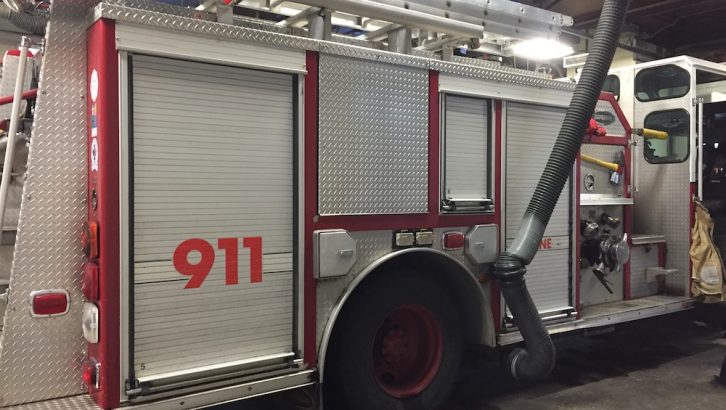Halifax firefighters call for expanded cancer coverage
Nova Scotia’s presumptive cancer coverage for firefighters is the weakest in Canada

caption
Halifax firefighters are calling on the province to expand their presumptive cancer coverage.The Halifax Professional Fire Fighters Association is calling on the provincial government to expand presumptive cancer coverage for firefighters.
In 2003, Nova Scotia enacted legislation that covered six cancers on a presumptive basis, meaning firefighters do not have to prove they obtained the cancer through their profession.
At the time this legislation was enacted, Nova Scotia led Canada in presumptive cancer coverage for firefighters. The province has since failed to pass additional legislation to expand this coverage.
“Research has gotten better, protective equipment is getting better, but the amount of toxins we’re exposed to has increased,” Joe Triff, vice-president of Halifax Professional Fire Fighters Association, said in an interview earlier this week.
“It’s an ever-evolving issue for us and it hasn’t been addressed in coming up on 20 years now.”

caption
Nova Scotia once had the strongest presumptive cancer coverage for firefighters in Canada. Now it has the weakest.In March 2019, NDP MLA Tammy Martin introduced a bill amending the Workers’ Compensation Act to triple the number of cancers covered to 18, including cancer coverage for both male and female reproductive systems.
The bill failed to pass, with Labour Minister Labi Kousoulis citing the government’s plan to overhaul the Workers’ Compensation Act, rather than simply amend it.
The government amended the Workers’ Compensation Act in the fall of 2019 to provide all volunteer firefighters with coverage, including presumptive cancer coverage, with changes slated to take effect on Oct. 30, 2020.
“We wanted to ensure that all firefighters had access to the presumption before the list was expanded,” said Shannon Kerr, a spokesperson for the Department of Labour and Advanced Education, in an email on Thursday.
“Now that all firefighters will have equal access to the presumption, we can look at adding more cancers to the list. Government is consulting firefighters this month and into the next around expanding the list of cancers.”
Triff said while there aren’t as many female firefighters as male, women are also impacted by reproductive cancers.
“If prostate, colon, testicular, penile cancers are all higher in men that are firefighters, then ovarian and cervical are certainly there for women,” said Triff.
Brendan Meagher, president of Halifax Professional Fire Fighters Association, agreed.
“This is not theory anymore,” he said in an interview.
“This is supported by numerous well done and well vetted scientific experiments that show our cancer rates are considerably higher than the general population in many types of cancer, especially the reproductive cancers.”
Meagher has been a firefighter in the Halifax area for more than 20 years, and said legislation is not keeping pace with the threats firefighters are facing.
“Our respiratory protection has come a million miles, but we know that our skin is the greatest source of entry into the body, and when we’re fighting fires we sweat and our pores open,” said Meagher.
“It’s very common for us to fight a fire and then after a week or more later, when you sweat, you can smell smoke again and it’s still coming out of us. We know it’s making us sick.”

p
paul
A
Albert
J
Jim